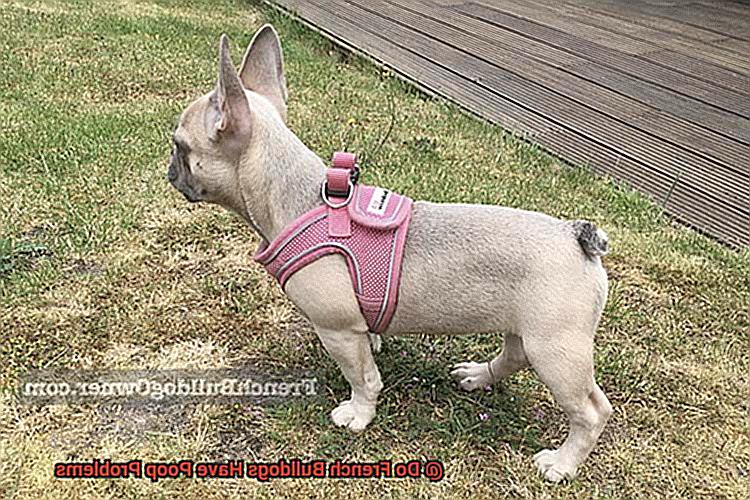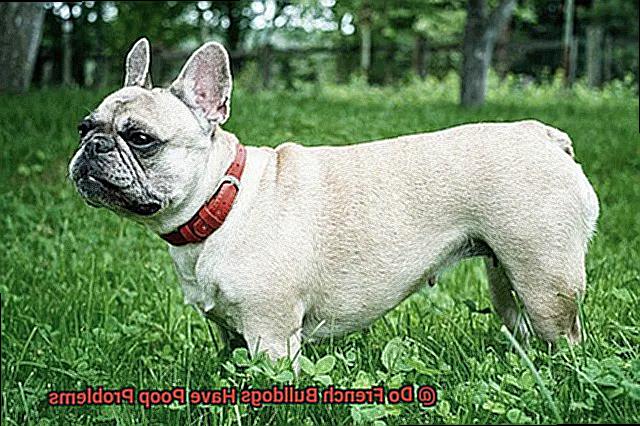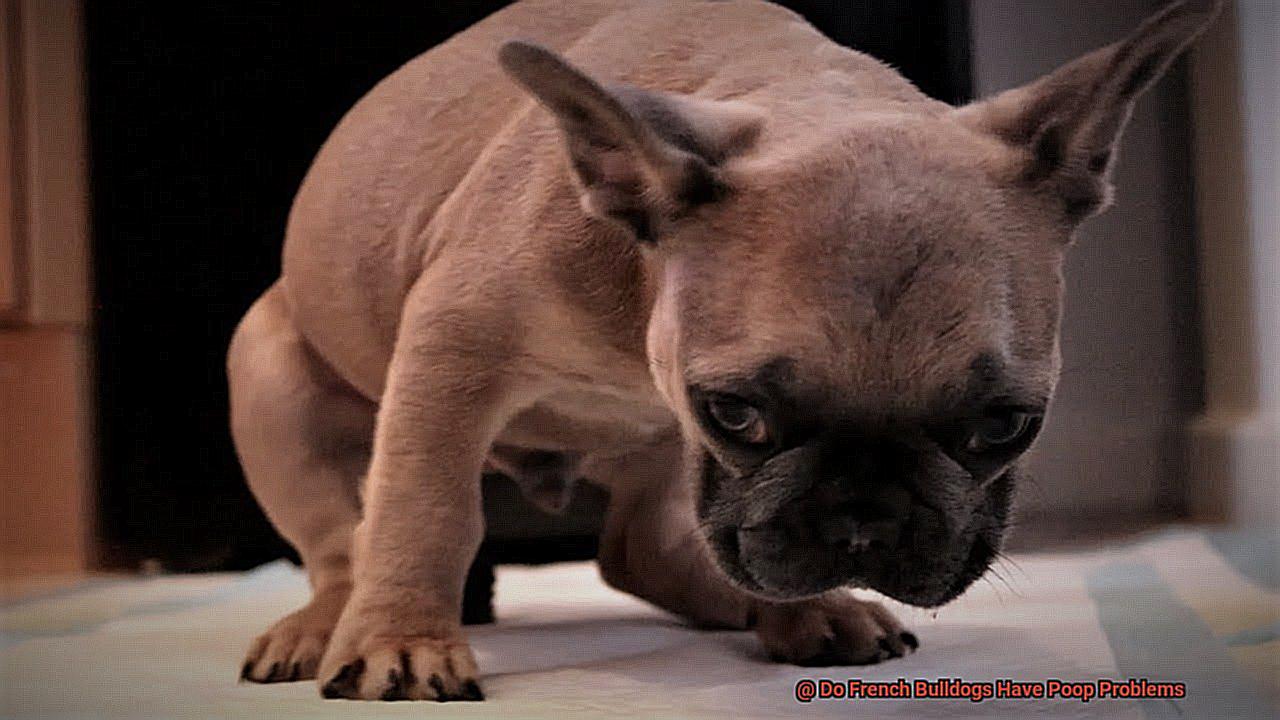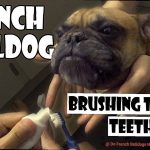Do French Bulldogs Have Poop Problems?
French Bulldogs, those adorable bundles of joy with their round faces and loving personalities, have stolen the hearts of dog enthusiasts everywhere. As a proud Frenchie owner myself, I can vouch for their quirkiness and undeniable uniqueness. However, it’s not all rainbows and sunshine in Frenchie land. These little pooches are known to have their fair share of digestive issues that can leave you knee-deep in…well, you know.
In this blog post, we’re going to dig deep into the world of French Bulldogs and their potential poop problems. We’ll unravel the reasons behind these issues, highlight common symptoms to watch out for, and arm you with essential tips to keep your furry friend’s digestive system running smoothly. So whether you’re a concerned Frenchie parent or just curious about these lovable pups, buckle up because we’re about to embark on an adventure.
Now, let’s get one thing straight right off the bat – not every French Bulldog is plagued by poop problems. But thanks to their unique heritage and physical traits, some Frenchies are more prone to digestive challenges than others. By understanding these challenges, we can become proactive pet parents who ensure our four-legged companions stay healthy, happy, and free from any unwanted surprises.
So grab a cuppa (or maybe something stronger if you’ve already had a run-in with Frenchie poop), because we’re about to dive headfirst into the fascinating world of French Bulldogs and their potential poop predicaments. By the end of this blog post, you’ll be armed with knowledge that will not only keep your Frenchie feeling fabulous but also strengthen the bond between you two.
Let’s roll up our sleeves (and maybe put on some rubber gloves) as we uncover the truth about French Bulldogs and their notorious poop problems.
Do French Bulldogs have poop problems
Contents
- 1 Do French Bulldogs have poop problems
- 2 What Causes Poop Problems in French Bulldogs?
- 3 Common Poop Problems in French Bulldogs
- 4 Difficulty Passing Stool
- 5 Diarrhea in French Bulldogs
- 6 Flatulence in French Bulldogs
- 7 Preventing Poop Problems in French Bulldogs
- 8 Maintaining a Balanced Diet
- 9 Providing Fresh Water and Regular Exercise
- 10 Conclusion
French Bulldogs are known for their adorable appearance and playful personalities. However, like any other breed of dog, they can experience poop problems that may cause discomfort and concern for both the dog and its owner.
In this blog post, we will explore the common poop problems that French Bulldogs may face and discuss effective solutions to help address these issues.
Diarrhea: A Common Digestive Upset
One of the most common poop problems in French Bulldogs is diarrhea. This can be caused by various factors, including dietary changes, food allergies or sensitivities, infections, or stress.
Diarrhea in French Bulldogs can be particularly worrisome due to their short snouts and increased risk of dehydration. If your French Bulldog experiences persistent or severe diarrhea, it is important to seek veterinary attention to rule out any underlying health conditions.
Constipation: Difficulty Passing Stools
Constipation is another poop problem that French Bulldogs may encounter. Factors such as inadequate hydration, lack of dietary fiber, or underlying medical conditions can contribute to constipation in these dogs. It can cause discomfort and straining during defecation.
Flatulence: The “Smelly” Side Effect
French Bulldogs are notorious for their gas production and flatulence. This can be attributed to their brachycephalic structure, which can lead to increased air intake while eating or drinking. Certain types of foods, such as those high in fiber or containing gas-inducing ingredients, can also contribute to excessive gas production.
Solution: To manage flatulence in French Bulldogs, consider feeding them high-quality, easily digestible food that is free from common allergens and additives. Smaller meals throughout the day can help reduce the incidence of excessive gas. If necessary, consult with a veterinarian to determine if any specific dietary changes or supplements may be beneficial.
What Causes Poop Problems in French Bulldogs?
If you’ve ever had to deal with poop problems in your furry friend, you know how frustrating and messy it can be. But fear not. As an experienced French Bulldog enthusiast and poop connoisseur, I’m here to share my expertise on what causes these issues and how to tackle them head-on.
Dietary Dilemmas:
French Bulldogs have sensitive stomachs, which means they can easily develop food allergies or intolerances. Feeding them low-quality or inappropriate food can lead to digestive upsets like diarrhea, constipation, or stinky gas. It’s essential to choose a high-quality diet that suits your Frenchie’s specific needs.
Dehydration Drama:
These adorable little pups are prone to overheating, and they may not drink enough water as a result. Dehydration can lead to dry and hard stools, causing discomfort and difficulty in the bathroom department. So make sure your Frenchie has access to fresh water at all times, especially during hot weather or vigorous play sessions.
Medical Matters:
French Bulldogs are prone to certain medical conditions that can affect their bowel movements. Brachycephalic airway syndrome, which causes breathing difficulties due to their cute flat faces, can also lead to increased abdominal pressure and difficulty in passing stool. Regular visits to the vet are crucial for monitoring your Frenchie’s overall health.
Pesky Parasites:
Intestinal parasites like worms can wreak havoc on your Frenchie’s digestive system, leading to diarrhea or other GI issues. Regular deworming and preventive measures are necessary to keep these unwelcome guests at bay.
Stress Struggles:
French Bulldogs may be sensitive souls, and any changes in their environment or routine can cause digestive disturbances and irregular stools. Minimizing stress and providing a calm and stable environment can help alleviate poop problems.
Pica Problems:
The notorious Frenchie tendency to eat non-food items. This behavior, known as pica, can lead to blockages in their intestines, resulting in constipation or even more serious complications. Keep an eye on your Frenchie’s chewing habits and prevent them from ingesting anything they shouldn’t.
Common Poop Problems in French Bulldogs
French Bulldogs are charming and popular pets known for their unique appearance and affectionate nature. However, they can be prone to certain poop problems due to their sensitive digestive systems and specific anatomical characteristics. In this article, we will discuss common poop problems in French Bulldogs and provide expert tips on how to prevent them.
Diarrhea:
Diarrhea is a common issue in French Bulldogs and can have various causes, including dietary changes, food allergies, infections, or stress. To prevent diarrhea in your Frenchie:
- Gradually introduce new foods to their diet.
- Avoid giving them table scraps or foods that may trigger allergies.
- Keep their environment stress-free and provide regular exercise.
Constipation:
French Bulldogs have a tendency to eat quickly and swallow air, leading to constipation. To prevent constipation in your Frenchie:
- Feed them smaller meals throughout the day.
- Provide them with high-fiber foods like pumpkin or green beans.
- Encourage them to drink plenty of water to keep their stools soft.
Flatulence:
Due to their short noses and compact bodies, French Bulldogs are more prone to gas buildup. To minimize flatulence in your Frenchie:
- Feed them a high-quality, easily digestible diet.
- Avoid giving them foods that are known to cause gas, such as beans or dairy products.
- Consider using probiotics to promote a healthy gut.
Blood or Mucus in Stools:
If you notice blood or mucus in your Frenchie’s stools, it could indicate an underlying health issue. Consult your veterinarian for proper diagnosis and treatment.
Incomplete Evacuation:
Some French Bulldogs may have difficulty fully emptying their bowels. To promote complete evacuation:
- Ensure they have regular exercise to stimulate bowel movements.
- Monitor their weight and adjust their diet accordingly to avoid obesity.
Difficulty Passing Stool
French Bulldogs, like any other breed of dog, can sometimes struggle with passing stool. It’s important for dog owners to understand the potential causes of this issue and how to help alleviate it. In this section, we will explore the reasons behind difficulty passing stool in French Bulldogs and provide some helpful solutions.
- Constipation: One common cause of difficulty passing stool is constipation. This occurs when the stool becomes hard and dry, making it difficult for your furry friend to eliminate. Dehydration, lack of dietary fiber, and certain medical conditions can contribute to constipation in French Bulldogs. Make sure your pup is drinking enough water and eating a balanced diet that includes fiber-rich foods.
- Intestinal blockage: Another possible reason for difficulty passing stool is an intestinal blockage. This occurs when something obstructs the passage of stool through the intestines, preventing it from being eliminated. Foreign objects that have been ingested, such as toys or bones, can cause an intestinal blockage. If your French Bulldog is showing signs of discomfort or distress while trying to pass stool, seek veterinary attention immediately.
- Anal gland issues: French Bulldogs may also experience difficulty passing stool due to anal gland problems. Anal glands are small sacs located on either side of the anus that produce a strong-smelling fluid. When these glands become impacted or infected, it can lead to discomfort and difficulty with bowel movements. Keep an eye out for signs of anal gland issues, such as scooting or excessive licking of the anus, and consult your veterinarian if necessary.

To help alleviate difficulty passing stool in French Bulldogs, here are some tips:
- Ensure your dog stays well-hydrated by providing fresh water at all times.
- Feed a balanced diet with an appropriate amount of fiber to promote regular bowel movements.
- Consider adding canned pumpkin or fiber supplements to your dog’s diet under veterinary guidance.
- Encourage regular exercise to stimulate the digestive system and promote healthy bowel movements.
- Monitor your dog’s anal gland health and seek veterinary care if any issues arise.

Diarrhea in French Bulldogs
French Bulldogs may be adorable and lovable, but like any other dog breed, they can experience gastrointestinal issues, with diarrhea being a common problem. As a French Bulldog owner, it’s essential to understand the causes and treatments to ensure your furry friend stays happy and healthy. Let’s dive into the world of French Bulldog diarrhea.
Causes of Diarrhea in French Bulldogs
- Dietary Changes: French Bulldogs have sensitive stomachs, so any sudden changes in their diet can lead to diarrhea. It’s important to introduce new food gradually and stick to a consistent feeding routine.
- Food Allergies: Just like humans, dogs can develop allergies to certain ingredients in their food, leading to digestive upset and diarrhea. Keep an eye out for common allergens such as wheat, soy, and dairy.
- Infections and Parasites: Bacterial, viral, or parasitic infections can wreak havoc on your French Bulldog’s digestive system and cause diarrhea. Regular deworming and vaccinations are crucial to prevent these issues.
- Stress: French Bulldogs are known for their sensitive nature, and stress can trigger diarrhea in these furry friends. Changes in their environment, routine, or even travel can induce gastrointestinal distress.
Treating Diarrhea in French Bulldogs
- Hydration: Diarrhea can quickly lead to dehydration, so ensure your French Bulldog has access to clean water at all times. Electrolyte solutions can help replenish lost fluids if necessary.
- Veterinary Consultation: If your French Bulldog’s diarrhea persists or becomes severe, it’s best to seek professional advice from a veterinarian. They may perform fecal tests to rule out infections or parasites as the underlying cause.
- Dietary Changes: Your vet may recommend a bland diet consisting of easily digestible foods such as boiled chicken and rice to help soothe your French Bulldog’s upset stomach. Gradually reintroduce their regular diet once the diarrhea subsides.
- Medication and Probiotics: Depending on the underlying cause, your veterinarian may prescribe medications to address specific issues such as bacterial infections or inflammation. Probiotics can also be beneficial in restoring a healthy balance of gut bacteria.
- Supportive Care: Providing a calm and stress-free environment for your French Bulldog during their recovery is essential. Avoiding unnecessary excitement or strenuous activities can help their digestive system heal.
Remember, each French Bulldog is unique, and what works for one may not work for another. It’s crucial to consult with a veterinarian for personalized advice tailored to your furry friend’s needs.
Flatulence in French Bulldogs
Don’t worry, you’re not alone. Flatulence, also known as farting, is a common issue for French Bulldogs. In this article, we’ll dive into the causes of flatulence in French Bulldogs and provide some tips on how to manage it.
- Anatomy Matters: The unique brachycephalic (short-nosed) structure of French Bulldogs can contribute to flatulence. This adorable feature can cause them to swallow air while eating or drinking, leading to increased gas production.
- Fast Eaters Beware: French Bulldogs have a tendency to eat their meals at lightning speed. This speedy eating can result in excessive air intake, which gets trapped in their digestive system and leads to flatulence. Consider using slow-feed bowls or puzzle feeders to encourage slower eating habits.
- Food Faux Pas: Certain types of food can cause flatulence in French Bulldogs. Foods that are high in fiber, carbohydrates, or fat can be difficult for their sensitive digestive systems to handle, resulting in gas production. Keep an eye on your pup’s diet and consider switching to a dog food brand that is specifically formulated for dogs with sensitive stomachs.
- Allergy Alert: Food allergies or sensitivities can also trigger flatulence in French Bulldogs. If you suspect that your Frenchie may have an adverse reaction to certain ingredients, consult with your veterinarian for guidance on an elimination diet or allergy testing.
- Exercise is Essential: Regular exercise and physical activity help stimulate proper digestion in French Bulldogs. By keeping them active, you can prevent the buildup of gas in their digestive tract and reduce the frequency of flatulence episodes.
- When to Worry: While occasional flatulence is normal, excessive gas accompanied by other symptoms like bloating, discomfort, or changes in bowel movements may indicate an underlying issue. In such cases, it’s best to consult your veterinarian for a thorough examination and appropriate treatment options.
Remember, every dog is unique, and what works for one French Bulldog may not work for another. Be patient and persistent in finding the right dietary and lifestyle adjustments that suit your Frenchie’s needs. By taking steps to manage flatulence, you can help your four-legged friend live a more comfortable and gas-free life.
Preventing Poop Problems in French Bulldogs
French Bulldogs, with their adorable flat faces and sensitive digestive systems, are prone to certain poop problems. From diarrhea to constipation and even excessive flatulence, these issues can be a real pain for both you and your furry friend. But fear not. With a few preventive measures and some expert advice, you can keep your French Bulldog’s poop problems at bay.
Consistent and Balanced Diet:
Maintaining a consistent and balanced diet is crucial for preventing diarrhea in French Bulldogs. Sudden dietary changes can wreak havoc on their delicate digestive systems. Stick to high-quality dog food and avoid giving them table scraps or low-quality treats. Remember, what goes in must come out.
Hydration and Fiber:
To prevent constipation in French Bulldogs, make sure they have access to fresh water at all times. Dehydration can lead to hard stools and difficulty passing them. Additionally, including fiber-rich foods in their diet, such as pumpkin or sweet potatoes, can help keep things moving smoothly.
Regular Exercise:
Regular exercise not only keeps your French Bulldog fit but also helps stimulate bowel movements. Take them for daily walks or play interactive games that get them moving. A little exercise goes a long way in keeping constipation at bay.
Mindful Feeding Practices:
French Bulldogs are notorious for inhaling their food, which can lead to excessive flatulence. To minimize this issue, feed them smaller, more frequent meals instead of one big feast. Avoid foods known to cause gas, such as beans or dairy products. And remember, slow and steady wins the race – encourage them to eat slowly to prevent air swallowing.
Good Hygiene Habits:
French Bulldogs may have difficulties with proper poop elimination due to their short tails and folds around their anal area. Regular hygiene practices are essential to prevent discomfort or infections. Clean the folds around the anal area thoroughly and keep the tail area trimmed to prevent fecal matter buildup.
Veterinary Check-ups:
Regular veterinary check-ups are crucial for monitoring your French Bulldog’s overall health and catching any potential poop problems early on. Your vet can provide advice specific to your dog’s needs and address any concerns you may have.
By following these preventive measures and being mindful of your French Bulldog’s unique needs, you can help prevent poop problems and ensure a happy and healthy life for your furry friend. Remember, a little extra care goes a long way in keeping those poops problem-free.
Maintaining a Balanced Diet
French Bulldogs are charming and lovable companions, but their delicate digestive systems require extra attention. To keep your furry friend’s tummy trouble-free and ensure regular and healthy poops, maintaining a balanced diet is of utmost importance. In this blog post, we will delve into the essential components of a French Bulldog’s diet, why it matters, and how you can provide them with the best nutrition to support their digestive system.
The Importance of a Balanced Diet:
A balanced diet for French Bulldogs not only ensures proper digestion but also supports their overall health and well-being. A well-rounded diet provides essential nutrients, vitamins, and minerals that aid in digestion and bowel movement regularity.
Protein Power:
Lean sources of protein such as chicken, turkey, fish, or lamb are crucial for your French Bulldog’s muscle development and growth. These proteins are easily digestible, ensuring optimal nutrient absorption and regulating bowel movements.
Healthy Fats for Digestive Health:
Including healthy fats in your French Bulldog’s diet is essential for maintaining a balanced digestive system. Opt for sources like salmon oil or coconut oil, which provide energy and aid in the absorption of fat-soluble vitamins.
Complex Carbohydrates:
Complex carbohydrates provide sustained energy and aid in digestion. Whole grains like brown rice, oats, or quinoa are excellent choices to include in your French Bulldog’s meals. Avoid refined carbohydrates or added sugars, as they can disrupt their delicate digestive system.
Fruits and Vegetables for Fiber and Nutrients:

Adding a variety of fruits and vegetables to your French Bulldog’s diet ensures they receive essential vitamins, minerals, and fiber. Fiber plays a vital role in maintaining regular bowel movements and preventing constipation. Suitable options include pumpkin, sweet potatoes, blueberries, and green leafy vegetables.
Hydration is Key:
Always ensure your French Bulldog has access to fresh water, as dehydration can lead to constipation and other digestive issues. Staying hydrated is crucial for their overall health and proper digestion.
Providing Fresh Water and Regular Exercise
French Bulldogs are known for their adorable appearance and playful personality. To keep them healthy and happy, it is crucial to pay attention to their specific needs, including providing fresh water and regular exercise. In this blog post, we’ll explore why these two factors are essential for maintaining healthy digestion in French Bulldogs.
The Importance of Fresh Water
- Dehydration and its impact on digestion
- Providing clean, accessible water at all times
- Tips for monitoring water intake during and after exercise
Exercise for Healthy Digestion
- Stimulating bowel movements through regular exercise
- Preventing constipation and promoting regularity
- Taking precautions to prevent heat stroke in brachycephalic breeds like French Bulldogs
The Role of Diet in Digestion
- Including fiber-rich foods in your French Bulldog’s diet
- Consulting a veterinarian or nutritionist for specific dietary requirements
- Establishing a consistent bathroom routine
By prioritizing fresh water and regular exercise, you can promote healthy digestion in your French Bulldog. Remember to provide clean water at all times, engage them in regular exercise routines, monitor their water intake during physical activity, ensure a balanced diet with fiber-rich foods, and establish a consistent bathroom routine. Your furry friend will thank you with regular and healthy poops.
Conclusion
French Bulldogs, like any other breed, can indeed experience poop problems. However, it is important to note that not all French Bulldogs will have these issues. Some may have perfectly normal bowel movements without any complications. Yet, there are certain factors that can contribute to poop problems in French Bulldogs.
One common issue is their sensitive digestive system. Due to their unique anatomy and genetic predispositions, French Bulldogs can be prone to digestive issues such as food allergies, intolerances, or sensitivities. These conditions can lead to diarrhea, constipation, or irregular bowel movements.
Another factor is their brachycephalic (short-nosed) structure. This physical characteristic can sometimes affect their ability to properly eliminate waste. Their short snouts and narrow airways may cause them to strain during defecation or have difficulty fully emptying their bowels.
Additionally, French Bulldogs are known for being voracious eaters and may have a tendency to gobble up their food too quickly. This rapid ingestion can result in poor digestion and loose stools.
To mitigate these problems, it is crucial for French Bulldog owners to provide a balanced diet that suits their specific needs. High-quality dog food formulated for sensitive stomachs or breeds prone to digestive issues can help alleviate poop problems.
Moreover, ensuring they have access to fresh water at all times is vital for maintaining proper hydration and promoting regular bowel movements. Regular exercise also aids in keeping the digestive system functioning optimally.
If you notice persistent or severe poop problems in your French Bulldog, it is advisable to consult with a veterinarian. They can provide guidance on dietary adjustments, recommend supplements if necessary, and rule out any underlying health conditions.
In conclusion, while some French Bulldogs may encounter poop problems due to their sensitive digestion or brachycephalic structure, proper care and attention from owners can minimize these issues.




